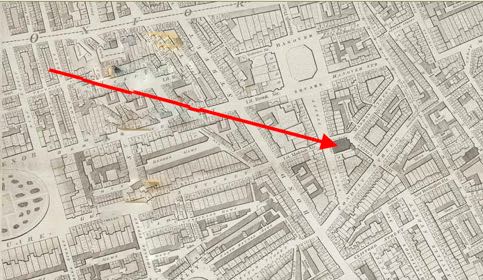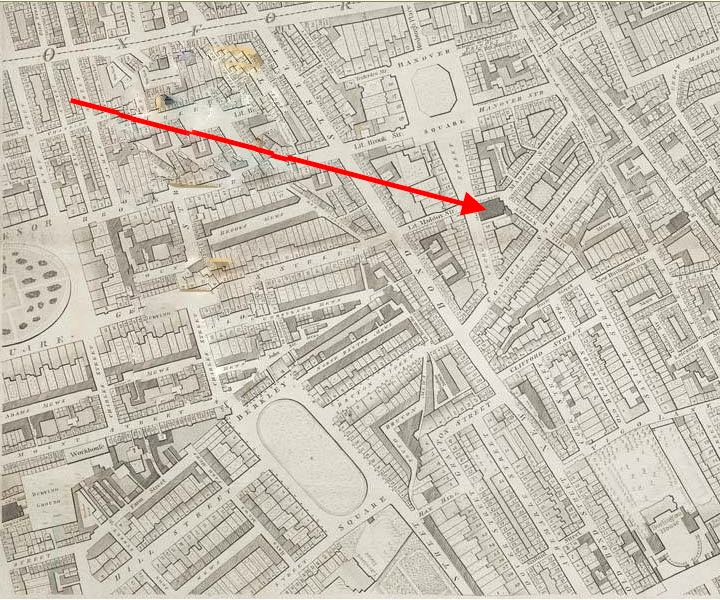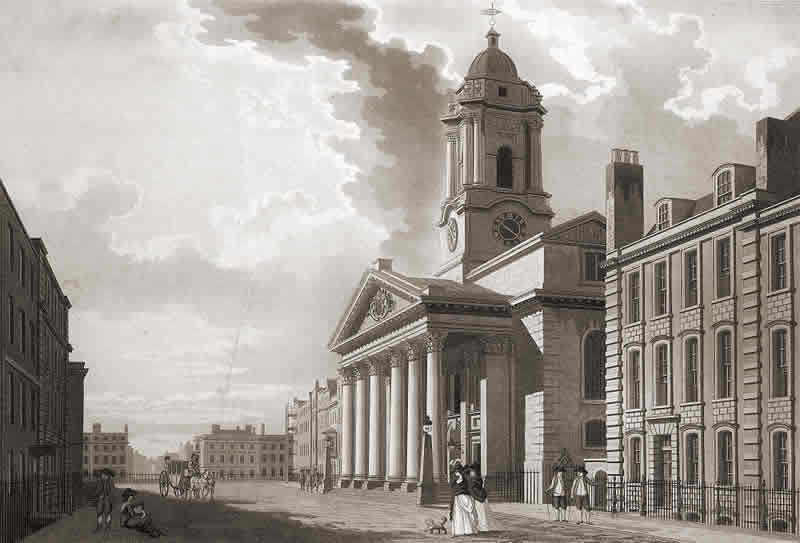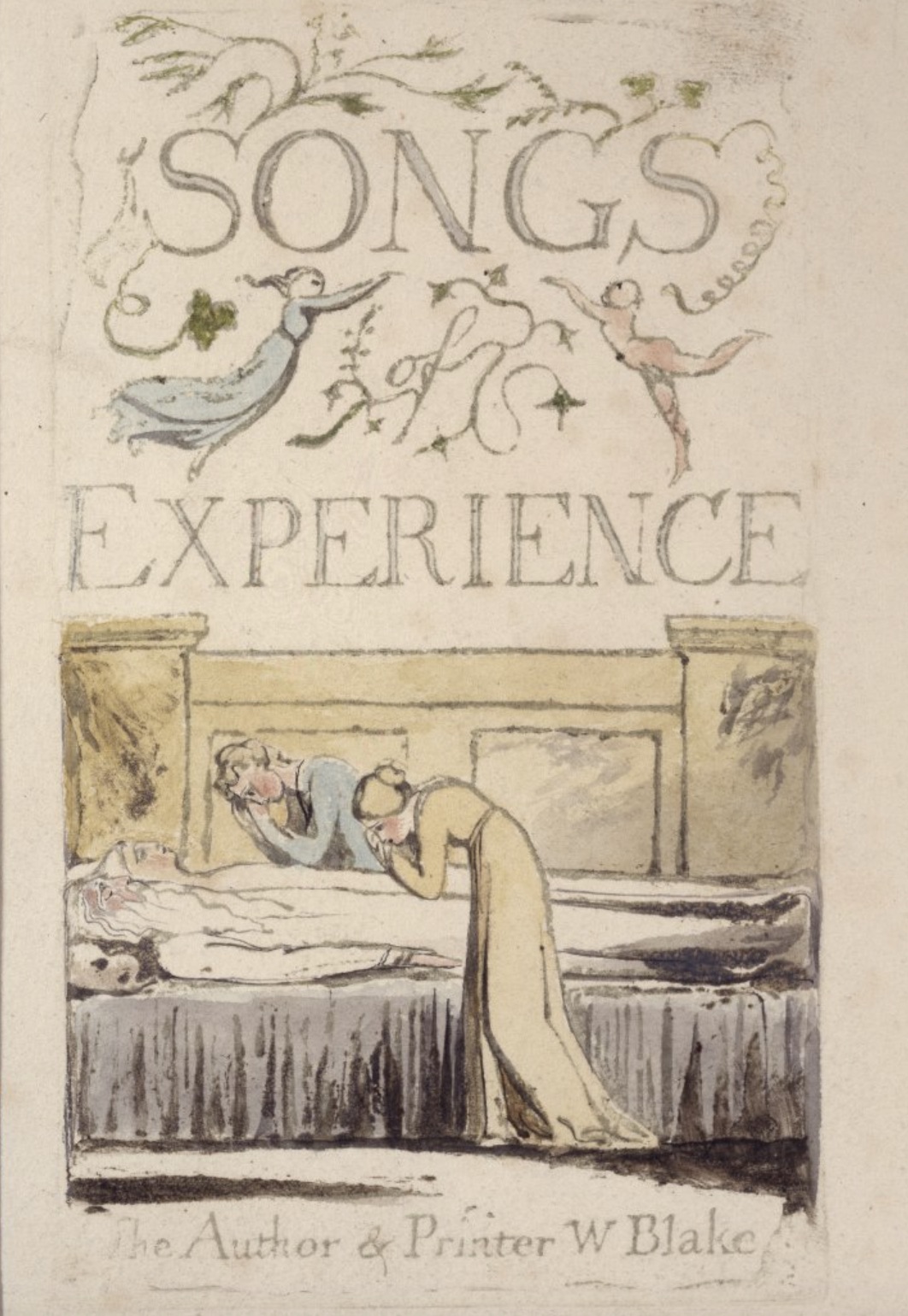9 October 1794: Marriage of Keats’s Parents
St. George’s Church, Hanover Square, London


Keats’s parents are married at the fairly stylish St. George’s Church, Hanover Square, 9 October 1794. Thomas Keats (born 1773) is 20 years old; Frances Jennings (born 1775) is 19. Little of significance is known about Keats’s mother and father, except the vague and harmless information that Frances was attractive but of short stature, that the father was sensible, somewhat stocky, and that they were decent, hardworking parents. But we do know that, ideologically, the parents of Frances have some dissenting sentiments: her parents—John (born 1730) and Alice (born 1736)—sent her two brothers to Clarke’s Academy (or School) in Enfield—which is where Keats also goes, and the school comes to inform some of his stronger values and beliefs, mainly in the realm of free-thinking.
Keats’s mother’s family own and run a successful and growing livery stable business just north of London. The venture is leased by Keats’s grandparents in 1794, at which time they do some renovations to expand the business. Keats’s own parents take over in 1802 into 1803. Under Thomas’ guidance, the well-situated business does well, and there is a sense that the money was to, as it were, move the family up in class; that Frances has thoughts of sending the two oldest sons (John and George) to Harrow (a very expensive school for the upper classes) suggests as much. That Keats is from the lower social orders is very far from the truth, as his education, attitudes, and aspirations show. His parents and maternal grandparents had grown into that growing middle-class of successful business owners.

Keats’s maternal grandparents and parents provide quite well for Keats children, but with their early deaths—Keats’s father dies in 1804, the grandfather in 1805, his mother in 1810, and grandmother in 1814—the quite substantial estate becomes complicated and then uncertainly managed up by their primary guardian and estate trustee, Richard Abbey. The Keats children never seem completely apprised of their inheritance money, and this is a constant difficulty and source of anxiety throughout Keats’s adult life—his life as a poet, that is. To the very end, Keats never trusts Abbey, though, to defend Abbey’s reluctance in handing money over to Keats, Keats as an adult does live a little recklessly on credit tied to inheritance funds. Finally, Abbey himself was never aware that a further reasonable sum (800 pounds or so) was available to him (via the courts) when he most needed it (designated money for him and his siblings from his maternal grandfather).
And in 1794? William Pitt (the Younger) is Prime Minister, and has been since 1783. In an effort by the Government to block the growth of radicalism, the so-called infamous Treason Trials take place in London; all were acquitted of the trump-up charges. King George III pushes for the continuation of war against France, and battles with France extend into 1794; the French armies generally have much success during the year, beginning the same month Keats’s parents are married. In France, Robespierre is executed in July, along with many others; the Reign of Terror ends. As for book publishing, a sampling from the year provides an extraordinary mix, including William Godwin’s Things as They Are; or The Adventures of Caleb William; Erasmus Darwin’s Zoonomia; or The Laws of Organic Life; Anne Radcliffe’s The Mysteries of Udolpho; William Blake’s Songs of Experience; Thomas Paine’s The Age of Reason; Being an Investigation of True and Fabulous Theology; and also in the same month as Keats’s parents marry, Samuel Taylor Coleridge and William Southey meet and publish their poem-play, The Fall of Robespierre. Through the 1790s, the population of London is heading toward one million, and by 1815, when Keats is making crucial decisions about becoming a poet, London’s population is 1.4 million.


